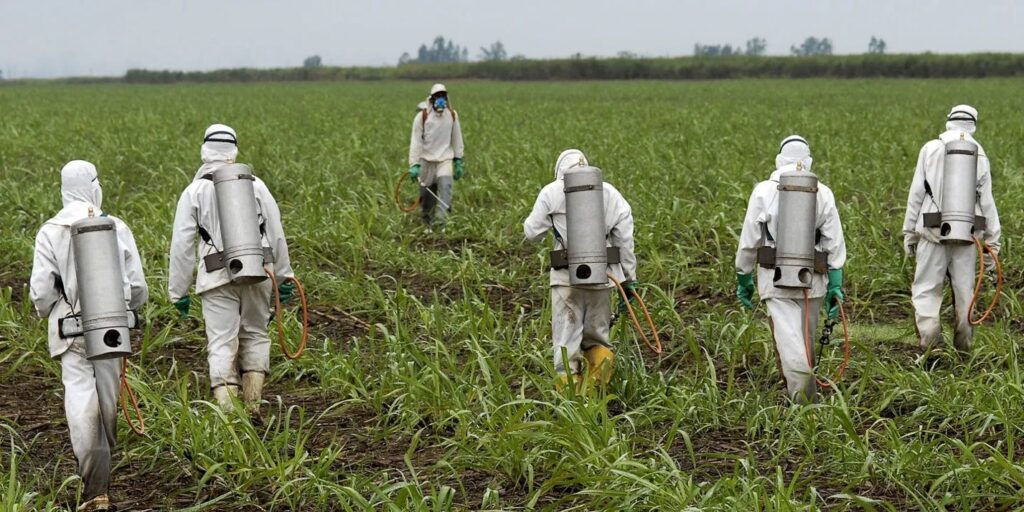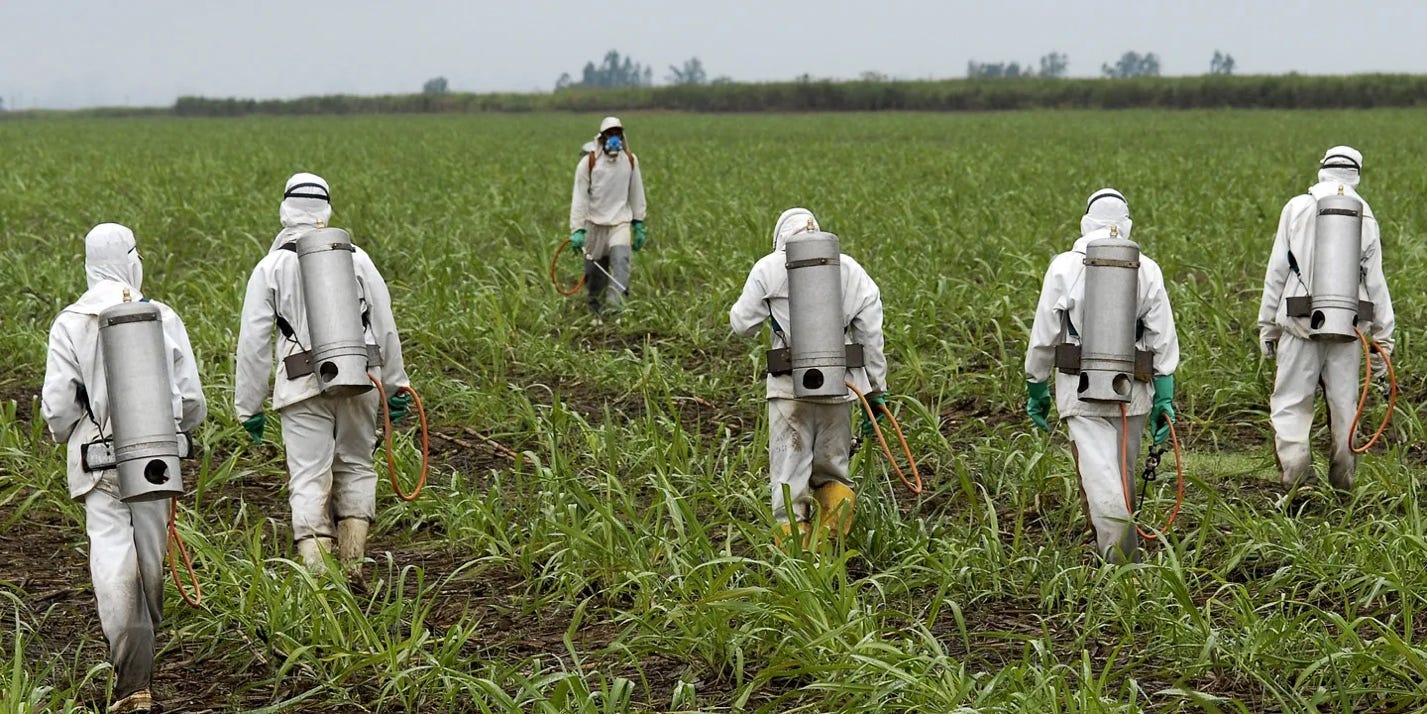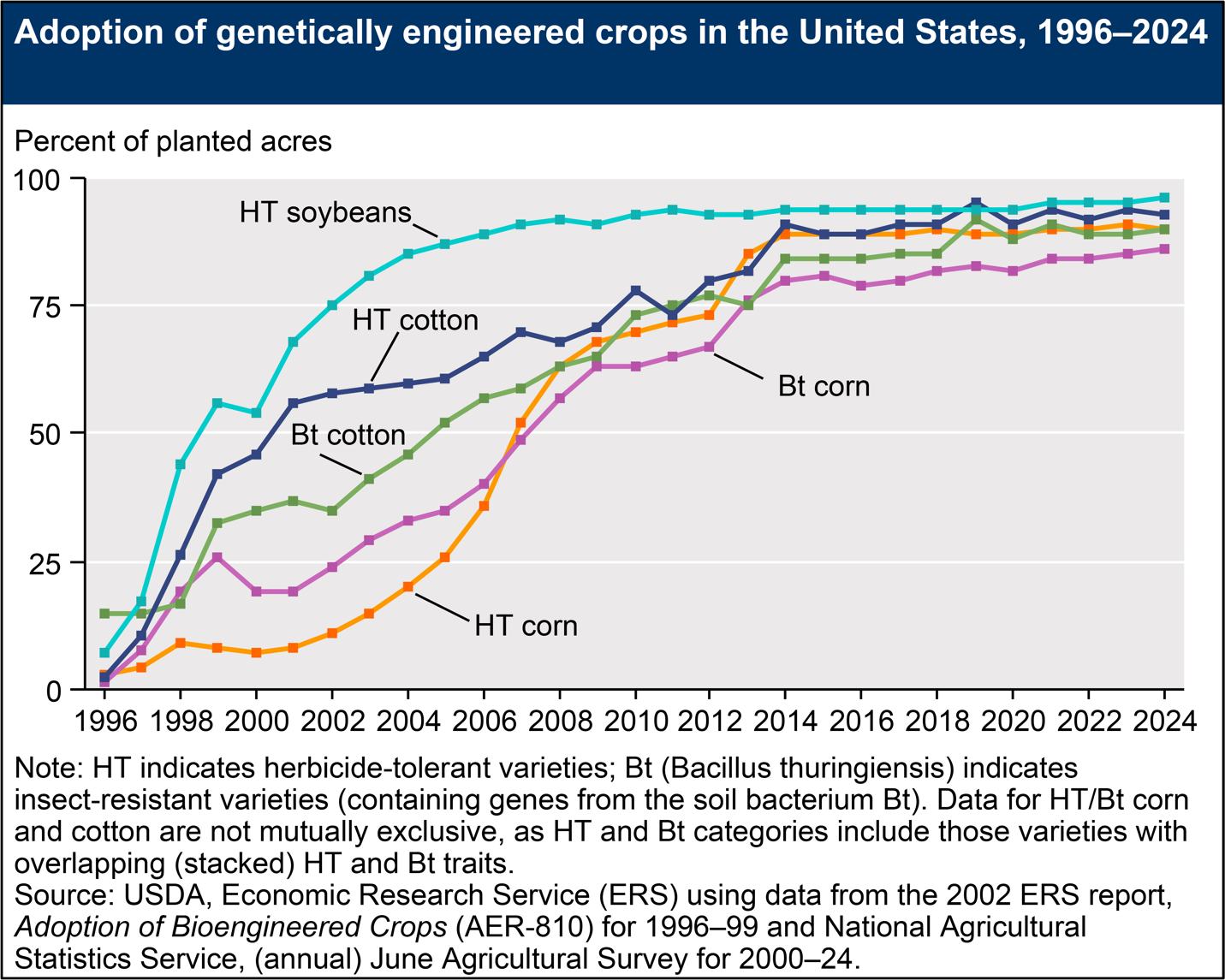Trade Panel Rules that Mexico Must Accept our Poisoned Corn

In 2015, the International Agency for Research on Cancer classified Glyphosate, the main ingredient in the herbicide, Round-Up, as a probable carcinogen. Since then, there have been over 100,000 lawsuits filed against the manufacturer, Monsanto, and its parent company, the German pharmaceutical and chemical manufacturer, Bayer, with over $11 billion paid out in settlements. However, when Mexico, which is banning the use of glyphosate, attempted to ban the import of corn treated with the herbicide, the Biden Administration protested.
Glyphosate and Round Up Ready Corn
Glyphosate is a broad spectrum herbicide that blocks a critical pathway common to most plants. Monsanto created genetically modified corn that resists the effects of glyphosate. For its Roundup Ready Corn, Monsanto even throws in a few bonus genes that cause the plant to release insecticides. Concerned about cross-fertilization of native corn and the health risks of glyphosate, Mexico has banned both the GMO and the herbicide within Mexico. But the import ban was a problem.
This GMO corn now accounts for more than 90% of corn grown in the US, so any ban dramatical limits US exports to that market. The North American free trade agreement constrains a nation’s ability to limit trade. So, the Biden Administration appealed to the authorities responsible for enforcing the agreement. The panel assembled to review the appeal agreed with the Biden Administration on all counts.
Science Dismissed
It is interesting to note that there was not a single scientist on the panel. The panel dismissed the detailed, 182-page report that Mexico submitted to support the ban because they had not followed proper protocols for conducting and submitting the risk assessment.
This decision echoes a similar response of the European Union to Germany’s efforts to ban glyphosate. The home country for Bayer, which now owns Monsanto, tried to ban the herbicide in 2023, but that decision was overruled by a panel from the European Union and Germany lifted the ban.
Not everyone agrees about the science on glyphosate. The EPA concluded that exposures through food are not high enough to pose a cancer risk. Many lawsuits have lost in court. But cancer is not the only health concern. Evidence suggests that it is an endocrine disruptor and has neurotoxic effects.
Whether one agrees with the Mexican assessment of risk or not, the use of a trade agreement to limit a country’s ability to prevent what it perceives to be a risk to the health of its citizens is profoundly worrisome. It is dismaying to see this from the Biden Administration. Given Trump’s open embrace of industry and disdain for regulations, we can expect far worse from the next Administration.






